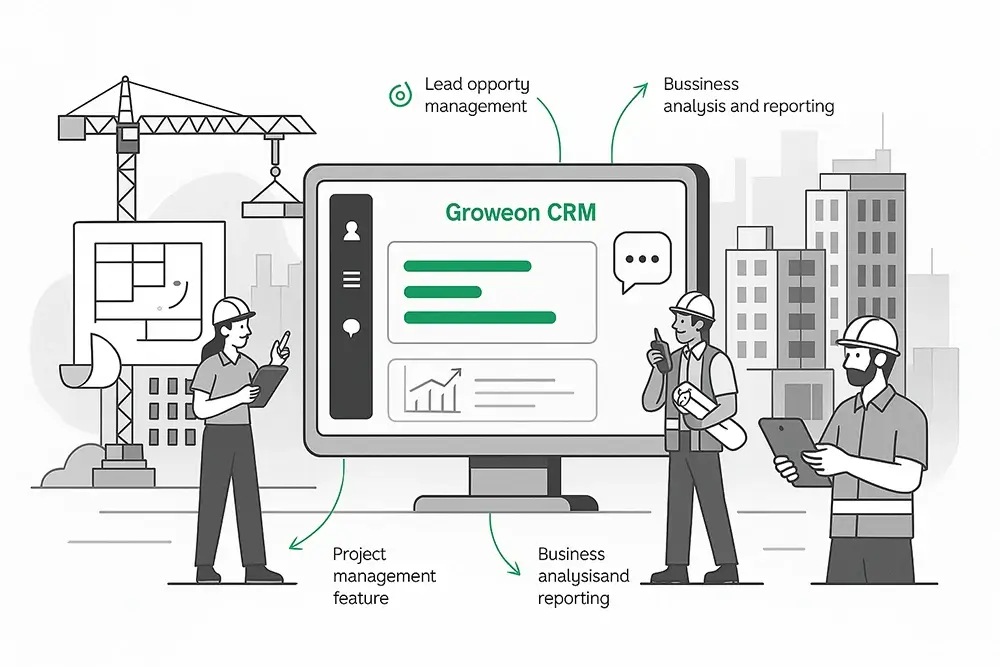Improved Efficiency
CRM systems help teams stay organized and on task by easily accessing customer information and streamlining processes.
Improve the speed and accuracy of estimating processes by allowing estimators to measure physical paper drawings or digital files (such as CAD drawings or PDF files) through a construction CRM.
Helps project managers track project costs, handle critical documentation, and foster collaboration among all building & construction project stakeholders in a construction CRM.
Use Construction CRM to calculate material and labor costs on an ongoing basis, then use those calculations to create a comprehensive quote.
Manage basic contractor accounting and labor costs in Construction CRM. Job costing allows accounting staff to allocate costs by project.
With several construction CRM options, consider the following factors when choosing.
Choose a CRM that fits your business and offers customized features specific requirements.
A user-friendly interface is essential to ensure team adoption and maximize the benefits of the software.
Make sure your CRM integrates seamlessly with the project management or accounting software you use.
Building CRM systems have different pricing structures Choose one that fits your budget and offers the features you need.
Acquiring and executing new projects is a complex process for a construction company, and winning in this competitive environment is not just about knowing projects and contractors. In this new world, how you manage your relationships, Identifying opportunities, and turn offers into offers is now more important. With Groweon's construction CRM, you can track your contracts and projects, improve information with various levels of the organization, and even access information locally.

Construction companies can use CRM to help their sales team identify and target prospects, track leads and opportunities, process orders, manage customer relationships, and increase customer loyalty.
CRM software helps sales teams manage the entire sales cycle from first contact to post-sales follow-up. It allows salespeople to create detailed profiles of each prospect and organize and store information related to their contacts.
You can automate a variety of repetitive tasks such as creating offers, sending emails, scheduling follow-ups, managing customer relationships, and tracking sales results.
Use valuable information about customer preferences and buying habits that can be used to personalize marketing campaigns.
CRM is a central place to store customer data, making it easy to identify trends and improve performance sales process efficiency.
This helps construction companies ensure their sales teams are well equipped to close deals and maximize profits. CRM is an incredibly powerful tool for construction companies looking to optimize their sales activities.
There are several benefits of using CRM in the construction industry, including:
CRM systems help teams stay organized and on task by easily accessing customer information and streamlining processes.
A well-functioning CRM software makes it easier for construction companies to offer services that create personal customer relationships. This helps build long-term loyalty and business growth.
CRM software can automate many manual processes such as follow-up emails and lead checks. This saves time, money and manual resources, allowing employees to focus on their core business.
CRM software help reduce costs and improve efficiency by automating routine tasks and providing easy access to customer information. This can help construction companies reduce their operating costs while providing quality services.
Building CRM software allow managers to monitor real-time customer interactions, sales results and project progress. As a result, teams can make quick and informed decisions that help them achieve better results.